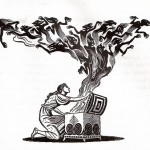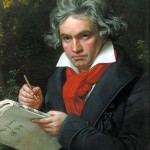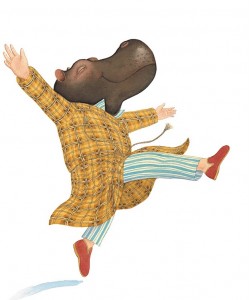This post should not be read by 7-9 year olds in possession of a new Oxford Junior Dictionary. Their world doesn’t need natural words rampaging through it. Continue reading
Tag Archives: Michael Morpurgo
And now a word from our sponsors…
Hipp-O-Dee-Doo-Dah!
This is the joyous name for a collection of very special short stories for children from Bridge House Publishing. Each one has an uplifting theme and all royalties have been donated to Children’s Hospices UK. The delightful cover was donated by Children’s Laureate Anthony Browne, and a heartfelt foreword written by Michael Morpurgo OBE. Special guest writers include Alan Gibbons and Lauren St. John who are both Blue Peter Book of the Year winners.
Readers can enjoy stories by other less established authors including one K. M. Lockwood. Look out for Buraq – a story where I took the ‘uplifting’ theme literally.
I have no shame in plugging this book – go buy it! Now .
Animal Instincts
 I don’t know if animals truly are good judges of character – but they can be used to show it in fiction. I am focusing here on how animal characters can illuminate the human ones.
I don’t know if animals truly are good judges of character – but they can be used to show it in fiction. I am focusing here on how animal characters can illuminate the human ones.
The way your characters treat animals can be a simple method to indicate empathy. They might take care to feed birds over winter. They might use humane traps for vermin. They might lift their piglet on the wall to see the parade! More conflicted characters can be revealed by a confused approach – vegetarian but eat fish, or keep urban chickens yet feed foxes. You might use concerns about animals as a plot driver: the vegan diver who liberates lobsters from local fishermen, the shoplifting lady with too many cats or the kid with a catapult keeping magpies away from nesting birds.
On the other hand, their behaviour towards animals can be used to show a character’s darker side. The green-stained fish tank, the donkey with untrimmed hooves or the stinking rabbit hutch speak of neglect and failed promises. What about the horrors who train magnifying glasses on ants, or pull legs off spiders? The choice of animal associated with a character can speak volumes – Philip Pullman knew that well with his use of daemons. And where would a world class villain be without an appropriate pet?
But it’s not just our character’s attitude towards animals that indicates personality – it’s the animals’ reactions to them. Ever since Bucephalus, the behaviour of the horse around a person has been used to indicate nobility and trustworthiness. Similarly the wagging tail of a dog can suggest they sense a warm open personality. An affinity with wildlife in particular has been used for innocence and patience – I love Dickon in ‘The Secret Garden’ for that.
Ambivalence, mystery or less stereotyping can be created by the showing the trust of more unusual animal in a given character. How will your reader react if a character wins the affection of a hooded rat, an ocelot or a seal? What if they are generally unpleasant – but feed deer at dusk on nectarines?
Of course, the fear or hatred of animals can be used to great effect. The reader does not feel comfortable round someone who makes the joyful blackbirds fall silent, makes a wolfhound tremble and droop its tail or a wildcat cower. And having a carrion crow as a companion certainly says something about a person.
So using an animal as a minor, secondary or ( as in the case of Black Beauty) central character can be useful strategy for letting your reader see personality in action – without hanging a label around your characters’ necks.
Five things that make me angry
I wrote this thinking of Michael Morpurgo’s splendid indignation in the Richard Dimbleby Lecture on the BBC. I doubt he will mind me re-iterating a few of his points.
So here are some things that make me want to drive the moneylenders out of the temple.
1. Disrespect of our planet
- plastic bags in tree tops, in turtle’s stomachs – litter anywhere – ‘someone else will clear it up’
- tampon parts on the beach – the sea doesn’t matter – out of sight, out of mind
- sofas dumped in woodlands – can’t be bothered to recycle
2. Disrespect of teachers
- I needed my identity confirmed.
- The form said my documents could be countersigned by a variety of professionals including JPs, doctors and estate agents.
- Teachers were not mentioned – they are lower than estate agents, apparently.
3. Disrespect of others
- effing and blinding on the bus
- old ‘dears’ on mobility scooters pushing past teenagers who were minding their own business
- people shouting abuse into mobiles
4. Disrespect of opinions
- adversarial politics where point-scoring matters so no-one listens
- management where domination matters so no-one listens
- bureaucracy where creeping up through the system matters and no-one listens
5. Disrespect of children
- cutting back libraries and school music and school trips and visitors to schools and teachers and books
- promoting celebrity culture and junk food and consumerism and promiscuity
- testing them to distraction so they close up with fear
What really enrages you?
Why bother?
You might well wonder. Why would any sane person face rejection after rejection, hours of work for an income of maybe £5k, and people asking ‘so what’s your proper job?’ or ‘are you the next JK Rowling?’ One answer, of course, is that children’s writers and illustrators are not sane!
A recent SCBWI group topic set by Candy Gourlay was “Authors and Illustrators in Waiting … How are you coping?” Paul Morton of Hot Frog Graphics came up with an excellent response:
‘ keep at it and keep believing’
I rather thought that could well be a SCBWI motto. It also set me to thinking about optimism in general.
It is hope that that inspires people to make New Year’s resolutions. Although we can be a little dismissive of such clichéd vows, we have to admire and learn from those who do make it through the grotty days of January and February sticking to their promises. The tough nuts who carry on cycling to the gym, the reformed smokers, the impressive slimmers – each deserves our admiration. Indeed, any sort of promise or vow is predicated on hope: I believe it is another reason why we love weddings, and why a baby brings joy.
 Sometimes the sheer difficulty of attaining your dream can make hope shrivel. It seems hidden, and keeping going seems more a case of dogged determination than optimism. Tolkien had Aragorn hidden and named Estel (Hope) as a child. He made the future king of Gondor wander the wilderness for the best part of sixty years. He suffers moments of terrible self -doubt: “An ill fate is on me this day, and all that I do goes amiss” – but his stubborn determination and belief in good over evil end in triumph.
Sometimes the sheer difficulty of attaining your dream can make hope shrivel. It seems hidden, and keeping going seems more a case of dogged determination than optimism. Tolkien had Aragorn hidden and named Estel (Hope) as a child. He made the future king of Gondor wander the wilderness for the best part of sixty years. He suffers moments of terrible self -doubt: “An ill fate is on me this day, and all that I do goes amiss” – but his stubborn determination and belief in good over evil end in triumph.
It is also hope that makes campaigners speak up for the things that matter to them: campaigner Steve Ross and children’s writer Michael Morpurgo bother to call on the government to “stand up” for libraries on Radio 4’s “You and Yours” as part of the show’s debate into library closures. Why Kate Mosse, Philip Pulman and Alan Gibbons keep banging on about this too – because they have hope. And it was why anti-slavery campaigner Olaudah Equiano wrote:
I hope to have the satisfaction of seeing the renovation of liberty and justice, resting on the British government, to vindicate the honour of our common nature.
Just as well something else other than the world’s ills came out of Pandora’s Box.
Reading matters
- Reading matters because it opens the doors of imagination. You can escape into another world with the most amazing views and adventures – then return whenever you want. Michael Morpurgo can bring you pets to keep without any complaints.
- Reading matters because it stretches your brain. You can learn new words, new concepts, new methods – and then baffle your friends.
- Reading matters because it deepens your compassion. You are able to walk in another person’s shoes, you can share their hopes and dreams, understands their fears and sorrows – think of Candy Gourlay’s Tall Story and Meg Rossof’s What I Was.
- Reading matters because it connects you to writers past and present, near and far. Laugh with Wodehouse and Philip Ardagh, shudder with Bram Stoker, Sarwat Chadda and Jon Mayhew, wonder with Kathryn Langrish and Sitoshi Kitamura.
- Reading matters because it takes you to new places and cultures. You could climb Everest in a wheelchair; then dive to the bottom of the Marianas Trench; learn about Dunbi the Owl from the Worora people or celebrate The Day of the Dead in Mexico.
- Reading matters because it takes you to ancient realms and possible futures. Fancy meeting Queen Hapshetsut and her beard, attending the Court of The First Emperor of China, designing your own vehicles ?
- Reading maters because it’s fun – how else can you enjoy the cracker jokes!
If you feel as strongly about this as I do you might want to blog and tweet about the decision, using #bookgifting and @booktrust and @savebookstart.
Please support Booktrust . Perhaps you might email Booktrust on bookgifting@booktrust.org.uk offering support. You could write to Mr Gove and to your local MP. Michael Gove changed his mind about school sport funding.
Read Keren David’s blog for an impassionerd article on this subject too.
All art aspires …
I have been puzzling over the Walter Pater quotation, and my take is that music speaks direct to the soul rather than needing explanation. There is craft, skill and interpretation in relaying music to the audience but finally, it communicates with your spirit, not your mind. Likewise with Turner’s ‘Fighting Temeraire’ or the nave of Durham Cathedral.
This led me on to considering writing in the same light. If our writing is too clever, too full of ornamentation- it may thrill the brain, the intellect – but it won’t reach deep inside. We need to write so cunningly our craft all but disappears. What a strange craft to work so hard to remove all traces of its maker. “Ars est celare artem” – as Ovid put it – the art is to conceal art.
My old art teacher (Mrs. Wyles, God bless her, of WEGHS) said that the second rate artists were good at the ruffles, the jewels, the things that people had about them but the best artists showed what was inside. That must be the same for writers.. at our best, we convey the essence of things in the way, for example, that the opening allegro non troppo of Beethoven’s Pastoral evokes awakening of cheerful feelings upon arriving in the country -” Gefühle bei der Ankunft auf dem Lande”. It isn’t a prettified Dresden shepherdess sort of of countryside he describes, but a consciousness. There would be no lambs gambolling with satin ribbons round their necks, if it were a poem.
It isn’t a prettified Dresden shepherdess sort of of countryside he describes, but a consciousness. There would be no lambs gambolling with satin ribbons round their necks, if it were a poem.
Not that I aspire to the Old Radical’s level.
 Yet think of the best craftwork you have ever seen; the humble Windsor chair as a f’rinstance.
Yet think of the best craftwork you have ever seen; the humble Windsor chair as a f’rinstance.
It does the job, but, with such elegance and simplicity it is a thing of beauty. The best stories are like that: no fancy mouldings, drawing attention to themselves and poking you in the back, but smoothed and satisfying with a sense of rightness.
I think this is really what is meant by the oft disparaged remark ; ” I don’t know much about Art but I know what I like “. What people respond to (unless they are taught to despise their own sensibilities) is Art which reaches them unmediated. I don’t need anyone to explain Andy Goldsworthy’s icicles any more than I need anyone to tell me what John Tavener’s ‘Protecting Veil’ means, or the point of Michael Morpurgo’s ‘War Horse’.
I might find criticism and glosses interesting – but they are not necessary.
“All deep things are song. It seems somehow the very central essence of us, song; as if all the rest were but wrappages and hulls.” ~Thomas Carlyle





